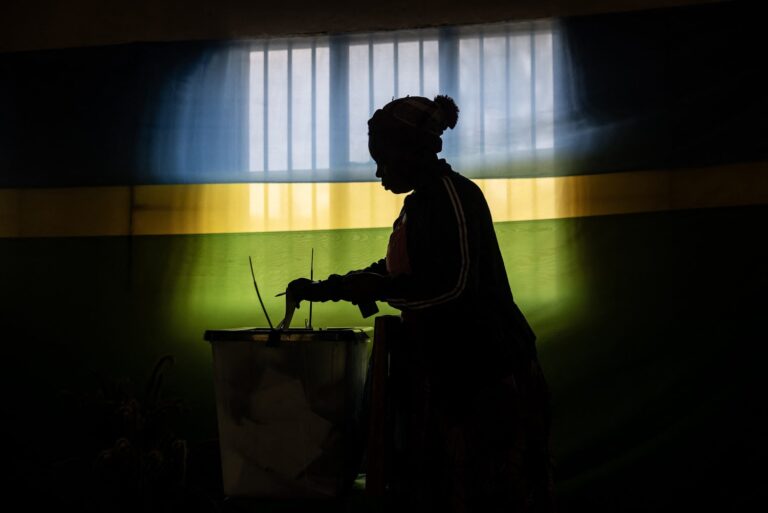Rwanda’s President Paul Kagame won 99% of the vote in Monday’s presidential election, election officials said in provisional results, a widely expected result as the country’s longtime ruler seeks to hang on to his three decades in power.
Kagame’s opponents, Frank Habineza of the Rwanda Democratic Green Party and independent candidate Philippe Mpaimana, received a combined vote of less than 1% in provisional results, accounting for 79% of the total votes cast.
The result was similar to that in 2017, when Kagame won nearly 99% of the vote.
The final results are expected to be announced by July 27, but may be released earlier.
President Kagame, 66, who has been in power since the country’s genocide ended in 1994, had a virtually unchallenged field of candidates. Two of his strongest critics were barred from running for high office.
Long queues formed at some polling stations in the capital, Kigali, where election officials said 9.5 million people were registered to vote in Rwanda’s 14 million people.
“This is my first time voting and I am voting for President Kagame because I have never seen a leader like him,” said motorbike passenger Jean-Claude Nkurunziza.
Kagame has led the East African country since he seized power in 1994 as the leader of a rebel group that seized government and ended the genocide. He served as vice president and de facto leader from 1994 until 2000, when he became president.
He is condemned by many as a violent dictator but also praised for presiding over remarkable growth in the three decades since the genocide.
Kagame is one of several African leaders who have extended their hold on power by pursuing changes to term limits: Rwandans voted to end the two-term limit in a national referendum in 2015.
Kagame could remain in power until 2034.
He told reporters on Saturday that he owed his mandate to the people.
“The ruling party and the Rwandan people have asked me to run for re-election,” he said. “Personally, I can go home and rest in peace.”
Rwanda’s election comes amid growing insecurity in Africa’s Great Lakes region, where a rebel group known as M23 is battling the Congolese army in remote areas of neighboring eastern Congo.
United Nations experts said in a report distributed last week that between 3,000 and 4,000 Rwandan troops were fighting alongside M23, a group the U.S. government has said is backed by Rwanda.
Rwanda accuses the Congolese army of recruiting fighters who were among the perpetrators of the genocide.
Human rights groups continue to sound the alarm about severe restrictions on human rights, including freedom of association, in Rwanda.
In a recent statement, Amnesty International expressed concern over “intimidation, arbitrary detention, prosecution on trumped-up charges, killings and enforced disappearances” targeting political opponents. The suppression of dissent, including civil society and the media, “has had a chilling effect and reduced space for debate for Rwandans,” it said.


